Last updated: November 3, 2023
A guide with tips on where best to place or hang a hummingbird nest or house, and how to keep hummingbirds happy and safe in the yard.
Perhaps one of the prettiest birds that can visit our backyards is the tiny but almighty hummingbird.
The hummingbird truly is a unique bird in so many different ways, and their nesting habits are also unique and different from other birds that often explore the outdoor spaces around our homes.
In this article, I will share some practical tips on where and how to install a hummingbird house or nest. I will also offer guidance on how best to deal with hummingbirds in the yard.
Hummingbirds and Nesting
As small as they are, hummingbirds are beautiful to watch in the garden or the backyard. They’re colorful, pretty, and very energetic.
One specific hummingbird species is even considered the smallest bird in existence. That species is the bee hummingbird, which is only 5 to 6 cm long and weighs around 2 to 2.5 grams.
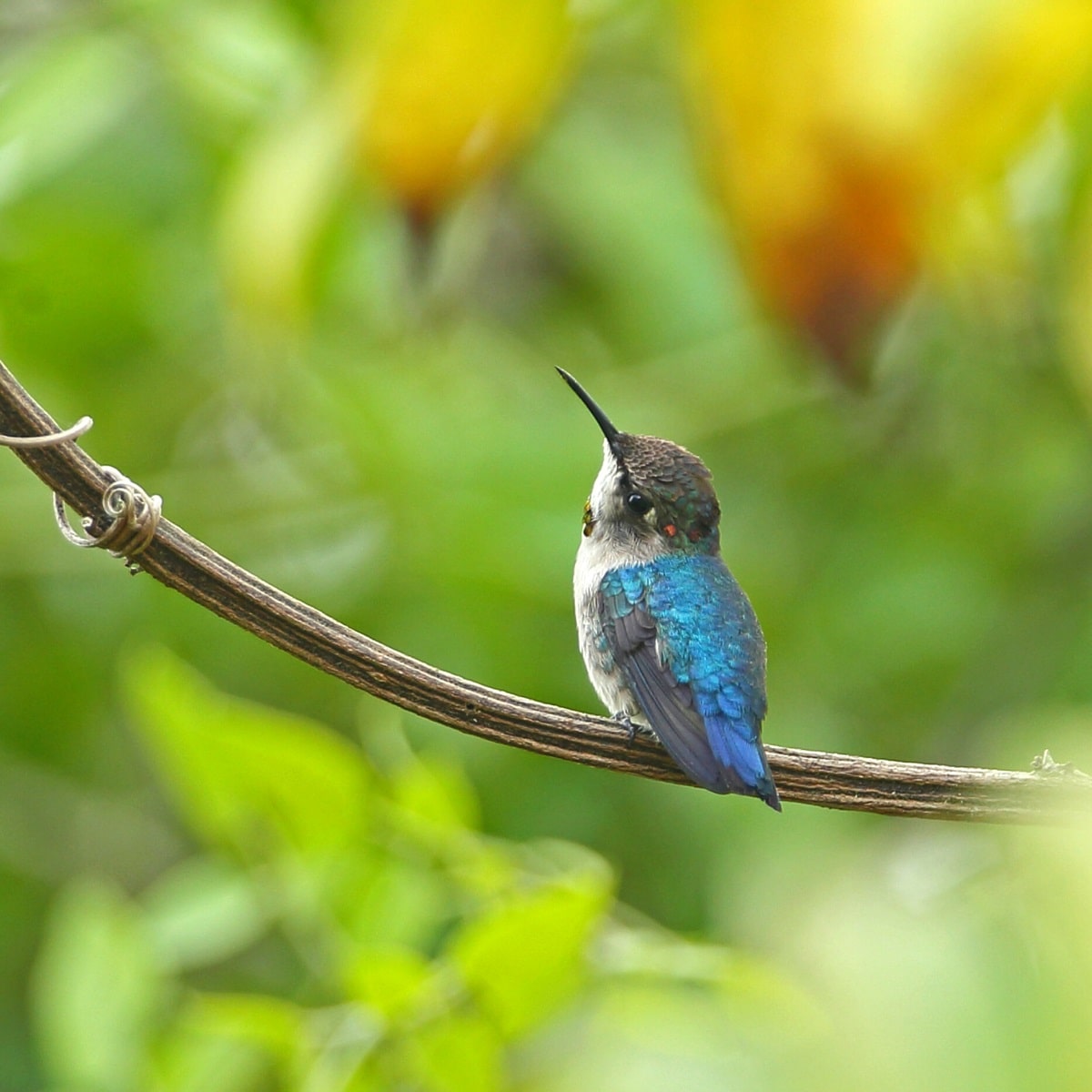
The bee hummingbird is only found in Cuba, but various other small and colorful hummingbird species do breed in the USA, such as the ruby-throated hummingbird and the broad-tailed hummingbird.
The calliope hummingbird is the smallest bird species native to North America and can be found mostly in the western states.
House or Nest?
Hummingbirds build and use nests; they don’t use the traditional bird houses we’re all familiar with. So, if you’re going to attach a classic birdhouse to a tree in your garden, hummingbirds are not going to use it.

The materials hummingbirds typically use to build their nests are fine, small, and lightweight. Here are some examples of commonly used materials:
- Feathers
- Spider silk
- Cotton fibers
- Cattails
- Moss
- lichens
- Tree bark
- Leaves
- Grass
With the materials they’re using, hummingbird nests usually don’t look the prettiest. But they’re functional and warm, and most importantly, they are well camouflaged.
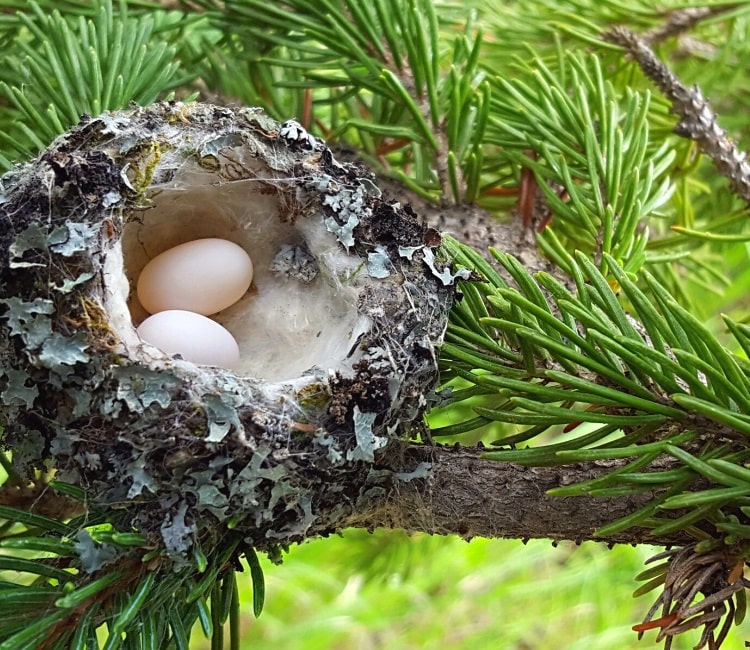
This may come as a surprise, but with hummingbirds, it’s mostly the female doing all the work when it comes to building a nest. The male is only involved in the mating ritual and doesn’t do anything else after the act.
It’s also interesting that the average hummingbird nest is surprisingly small and often not much bigger than 1.5 to 2 inches in diameter. But female hummingbirds are excellent engineers because their nests are soft and stretchy but also very robust.
Where to Place a Hummingbird Nest?
If you’re going to purchase a ready-made hummingbird nest or house, where should you hang it? Location is always important when it comes to installing birdhouses, but this holds especially true for hummingbirds.
To find the best location for a hummingbird nest, you need to mimic what hummingbirds do instinctively. They typically build their nests at least 5-10 feet off the ground, but often much higher.
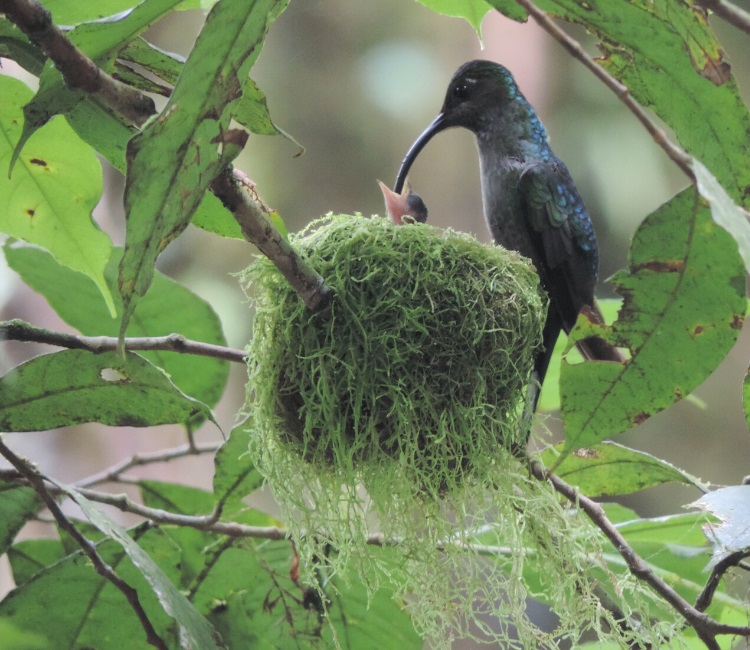
They often choose thick shrubs or tree branches as that will give their nest the most protection from predators, in addition to the height.
Examples of common locations for hummingbird nests are shrubs and small trees, but they can also often be spotted in unexpected places as long as there is a sense of protection for them.
As mentioned, hummingbirds do not like a traditional nesting box or a classic birdhouse. They prefer an open design for their nest, and they simply won’t build a nest inside a man-made box.
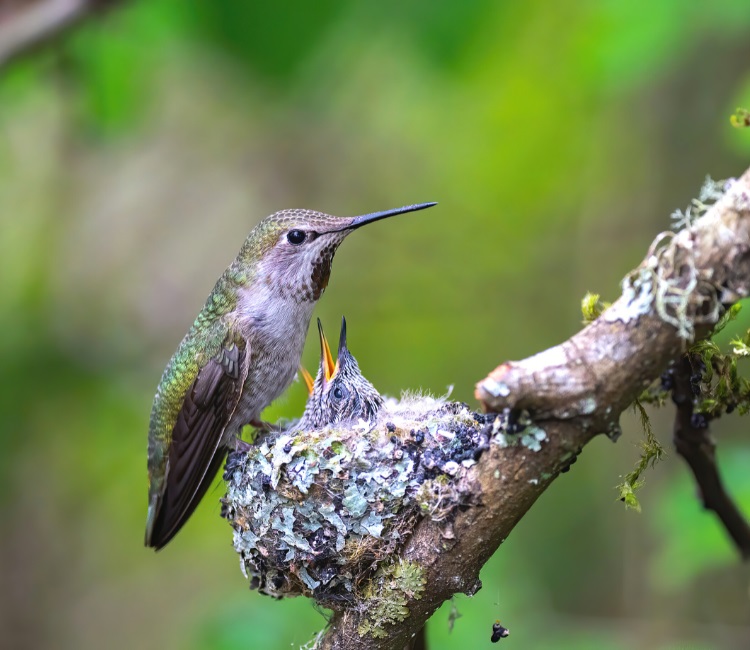
A purpose-built hummingbird nest can best be placed in trees or shrubs, but flower baskets, backyard statues, or fountains can also be used.
Once you’ve spotted nesting hummingbirds in your outdoor space, it’s essential to leave them alone as much as possible. They will abandon their nests at the slightest sign of danger.
5 Tips to Attract Hummingbirds to the Yard
If you’d like hummingbirds to nest in your backyard, you can buy a ready-made nest or house, or make your backyard a more attractive place for hummingbirds to build their own nest.
Either way, here are five tips to attract hummingbirds to your outdoor space.
1. Shelter
Hummingbirds will always look for sheltered areas to protect themselves and their nests against the elements and potential predators.
As such, they will be looking for trees, thick shrubs, and plants where they can potentially build their nests but where they can also easily find shelter.
2. Nectar Bird Feeder
A nectar bird feeder, otherwise known as a hummingbird feeder, is purpose-built to hold a mixture of table sugar and water.
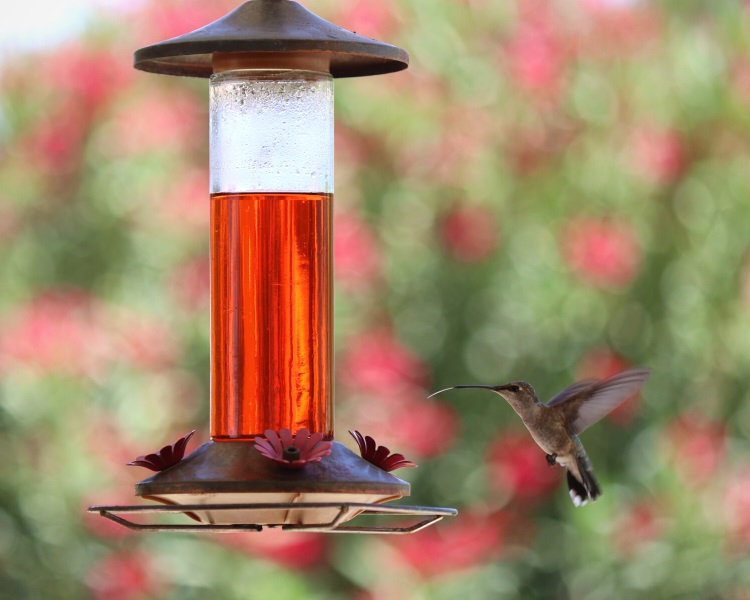
Hummingbirds love it, and as long as you place the feeder in a strategic and sheltered place, they will happily use it to feed. Also make sure you try to keep ants away from your hummingbird feeder, because ants love sweet drinks just as much as hummingbirds do.
Have a look at my list of bird feeder types for more ideas to enhance your outdoor space for birds.
3. Control Predators
As mentioned, hummingbirds are quite shy, and at the slightest sign of danger, they will leave or otherwise stay away. As such, try to keep a large area of your backyard free from pets such as dogs and cats.
It’s also important to try and keep wild predators (such as snakes, frogs, lizards, and feral cats) out by removing food sources like food scraps and always cleaning up properly.
Similarly, it’s important not to walk around in hummingbird-friendly areas of your outdoor space because humans can also be seen as predators.
4. Nectar Rich Flowers
Perhaps the best way to attract hummingbirds to your outdoor space and encourage them to nest is by having plenty of nectar-rich flowers in your garden.
Examples of such plants and flowers are the cardinal flower, the butterfly bush, the honeysuckle, and the bee balm. It’s always best to choose native plants and flowers so that the hummingbirds that thrive in your specific area will be more familiar with them.
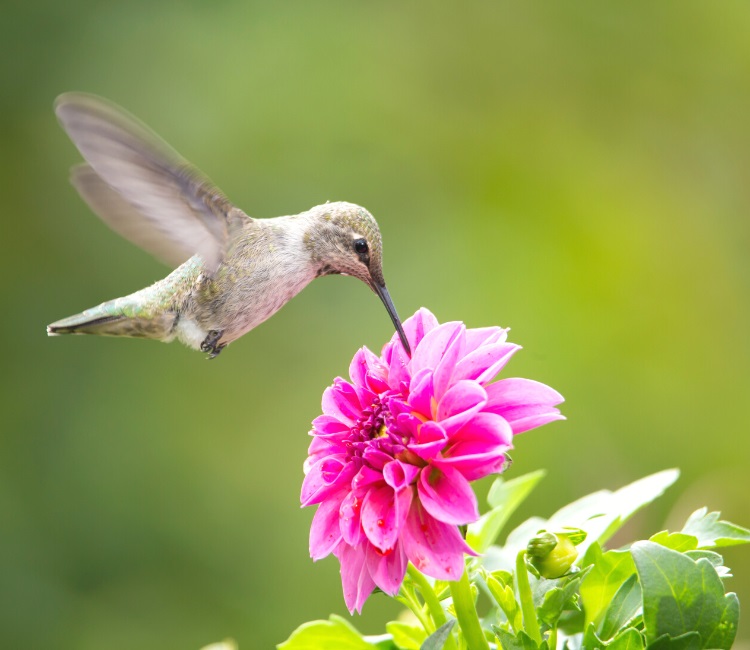
Not only will hummingbirds appreciate those flowers, but since they are often bright and colorful, your outdoor space is going to look so much better. Keep in mind, though, that bees, wasps, and other insects will also be attracted to flowers.
It’s best to plant flowers in a strategic place away from seating areas so that wasps won’t invade the patio area, or any other flower-loving insects for that matter.
5. Water Source
Like any other type of bird, hummingbirds also need to drink water. One way to achieve that is by placing a small bird bath in the garden that they can use.
But since hummingbirds are so tiny, they don’t need a big water source. A modest water mister or bubbler can work quite well as a water source.
Have a look at my list of decorative bird baths for more backyard inspiration.
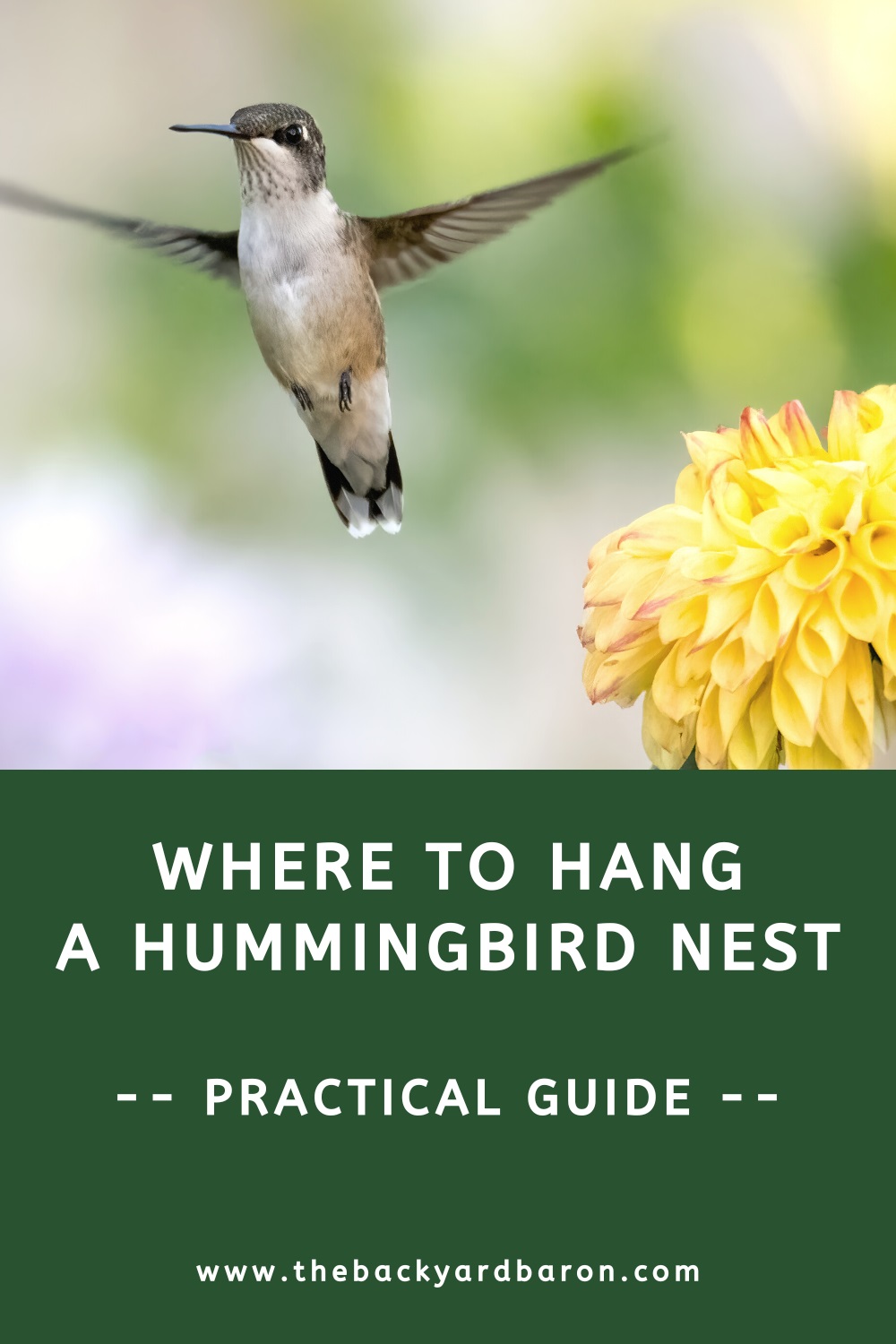
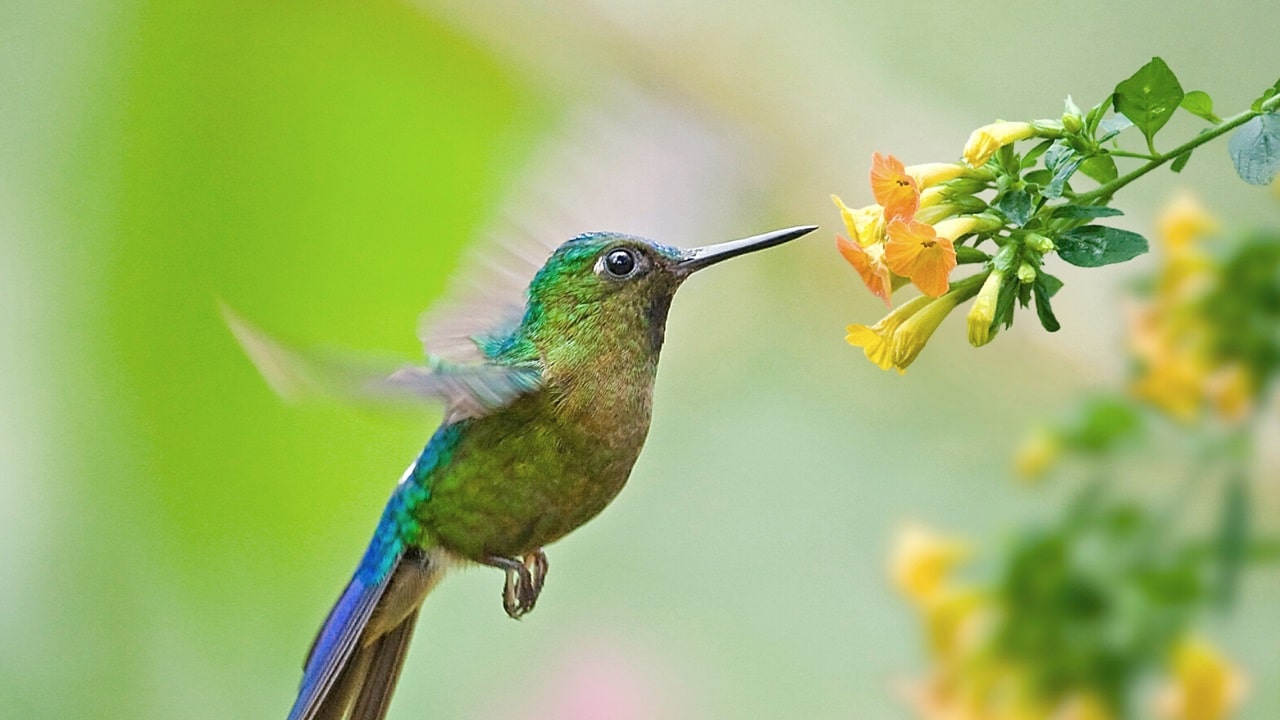
Thank you for sharing your knowledge.
Thanks, Lecia, and you’re welcome!